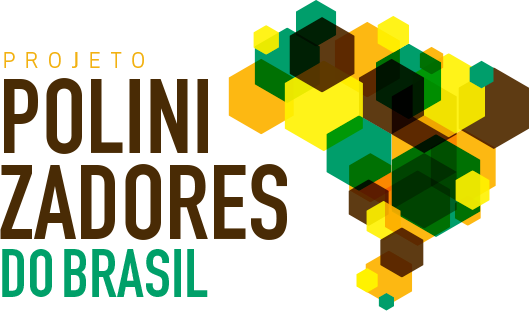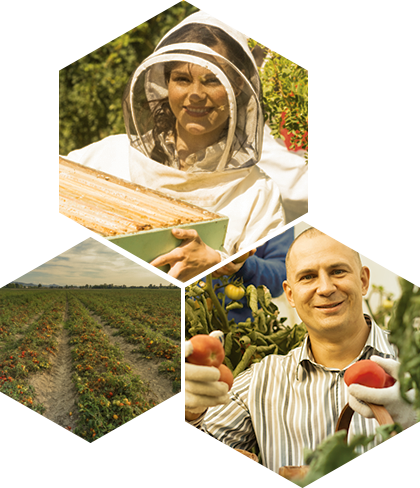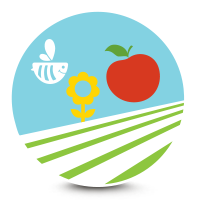why save the bees
The drastic reduction, all around the world, by quantid ...
In order to better understand the importance of pollinators and pollination in agricultural development, O Pollinators Project Brazil, coordinated by the Ministry of the Environment, conducted research and training and awareness activities over the last five years. Housed in an international initiative of the Food and Agriculture Organization - FAO, funded by the Global Fund for the Environment (GEF – Global Environmental Facility) and has the Brazilian Biodiversity Fund - Funbio as Executive Agency, the project concentrates efforts in seven major crops in Brazil: cotton, cashew, canola, chestnut, Apple, melon, and tomato. Management plans, scientific publications, educational and valuable videos were produced to farmers and also to bee breeders.
A global initiative, called "Conservation and Management of Pollinators for Sustainable Agriculture through an Ecosystem Approach" also brings together South Africa, Desire, India, Nepal, Pakistan and Kenya. Approved by the GEF in June 2008, It started in March 2010, lasting 5 years and a more than $ budget 20 million for the Global Project (from the preparation phase to full implementation), of which about US $ 3,5 million for the Brazil.
The organization Bee or not to be has in its objectives guide the bee and beekeeping as essential activities of the agricultural production chain, and therefore established the partnership with Pollinators Project Brazil, to communicate and share these important studies that not only demonstrate the benefits of pollinators, but guide the farmers on management techniques and conservation of pollinators in several crops.


Pollination is the process that ensures the production of fruits and seeds and breeding of various plants, one of the main mechanisms maintenance and promotion of biodiversity on Earth.
For it to happen, come into play pollinators, which are animals such as bees, wasps, butterflies, birds and bats responsible for transferring pollen between the male and female flowers. In some cases, Also the wind and rain perform this role.
Of the known species of flowering plants about 88% rely, at any moment, pollinating animals. More than 3/4 species used by humans for food production depend on pollination for quality production and amount.
The pollinators contribute to the maintenance of our food diversity and quality of life. Without pollinators there is no food.
The Pollinators Project Brazil integrates national institutions in large research networks, with significant results in sustainable management in pollination networks of cultivated plants
 To ensure that the services provided by pollinators continue in agriculture, it is necessary to better understand the factors influencing the populations of these animals. Where there are no pollinators, food safety may be compromised, reducing crop yields, negative effect on the economy.
To ensure that the services provided by pollinators continue in agriculture, it is necessary to better understand the factors influencing the populations of these animals. Where there are no pollinators, food safety may be compromised, reducing crop yields, negative effect on the economy.
It is very important to identify and use sustainable management practices that reduce the negative impacts caused by humans on pollinators, promote the conservation and diversity of native pollinators, and conserve and restore natural areas necessary to optimize pollinator services in agricultural areas.
The results of Pollinators Project Brazil contribute to the awareness of farmers and the general population about the importance of conservation and sustainable use of pollinators to ensure, among other benefits, improving the quality and quantity of agricultural production and economic performance.
 Conserve natural areas, maintaining native vegetation next to the growing area.
Conserve natural areas, maintaining native vegetation next to the growing area.
 Create a direct channel of contact with beekeepers. A Instruction Do joint No.1 MAP (DOU 04/01/2013), It indicates that it is the responsibility of farmers warn beekeepers present in a culture of 6km radius, and 48 hours in advance, on aerial spraying activities.
Create a direct channel of contact with beekeepers. A Instruction Do joint No.1 MAP (DOU 04/01/2013), It indicates that it is the responsibility of farmers warn beekeepers present in a culture of 6km radius, and 48 hours in advance, on aerial spraying activities.
The drastic reduction, all around the world, by quantid ...
Freebee: How bees can help raise food security of ...
In Brazil, It created the project "Pollinators d ...
Preserve and encourage the presence of polinizadore ...